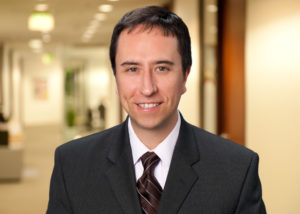 Nelson Hardiman attorneys Mark Hardiman and John A. Mills recently obtained an order denying a hospital medical executive committee’s attempt to consolidate a physician’s peer review hearing with another physician’s peer review hearing.
Nelson Hardiman attorneys Mark Hardiman and John A. Mills recently obtained an order denying a hospital medical executive committee’s attempt to consolidate a physician’s peer review hearing with another physician’s peer review hearing.
Nelson Hardiman’s client, a physician with surgical privileges at a California hospital, had been threatened with revocation of his privileges and medical staff membership due to alleged concerns with the physician’s financial arrangements. At the same time, the medical executive committee (“MEC”) of the same hospital was seeking to revoke the privileges and medical staff membership of another physician (not represented by Nelson Hardiman) due to that physician’s financial arrangements. Both physicians independently requested quasi-judicial administrative hearings before a Judicial Review Committee, as permitted by California Business and Professions Code section 809 et seq. and the hospital’s medical staff bylaws. Shortly after each physician independently requested a Judicial Review Committee hearing, the hospital’s medical executive committee brought a motion with the hearing officer to have the two peer review hearings consolidated into one.
The MEC argued that, because of the similar nature of the charges against the two physicians, hospital resources would be conserved by consolidating and merging the peer review hearings into a single proceeding with the same Hearing Officer and the same Judicial Review Committee (“JRC”). On behalf of its client, Nelson Hardiman vigorously opposed the MEC’s motion to consolidate. Nelson Hardiman argued that consolidation of its client’s case with that of another physician would (1) violate its client’s right to have confidential peer review proceedings and (2) cause the JRC, which acts as a jury in peer review hearings, to confuse the facts and circumstances of Nelson Hardiman’s client’s financial arrangements with those of the other physician, thereby seriously prejudicing Nelson Hardiman’s client’s right to a fair hearing. Furthermore, Nelson Hardiman argued that neither the law nor the medical staff bylaws conferred the authority on the Hearing Officer to consolidate the physicians’ peer review hearings.
Following many pages of briefing and oral argument, the Hearing Officer denied the MEC’s motion to consolidate. The Hearing Officer agreed that he lacked the authority to consolidate the hearings and, furthermore, he expressed concern that consolidation would prejudice the physicians’ right to fair hearings. The Hearing Officer correctly recognized that the charges against the two physicians bore significant differences, such that “the potential for confusion and the tainting of one case with the evidence in the other case is too great . . . that [the Hearing Officer] could not in good conscience order the consolidation.”